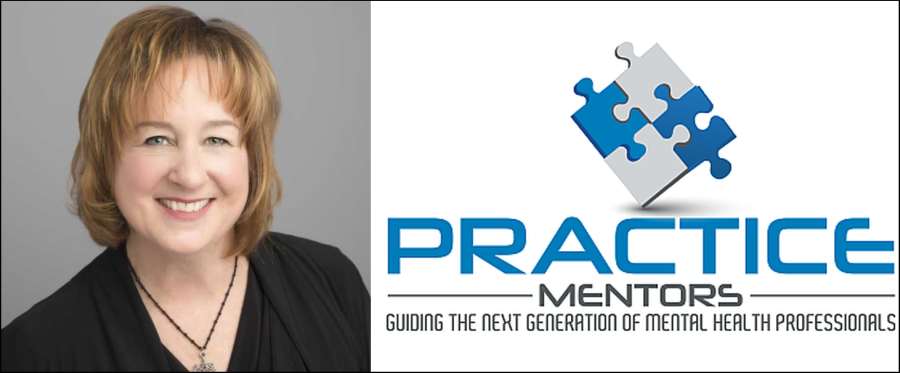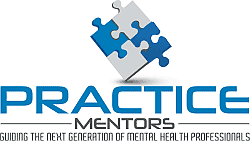The 1 Reason Why the No Surprises Act Doesn’t Apply to You

This Week's Poll
True or False?
(We'll give you the answer next week or you could go look it up in your BHEC/Board Rules)
Ok, many counselors are working themselves into an unnecessary tizzy about the No Surprises Act and what they should change in their practices. That course of thought is built on a giant assumption that this Act applies to us. But let's start at the beginning. I want you to think logically, read it for yourself and form your own opinion. Stop relying on what someone else is telling you.
"But Kathleen, you're telling me".....
No, I just told you to go read it yourself and form your own opinion. I'm just going to help you by pointing to the resources. There are two giant toads in the room to address so let's begin with the smaller of the two.
What Does BHEC Say About It?
The No Surprises Act is a FEDERAL law and as such BHEC has ZERO jurisdiction. That means they are not charged with implementing it, administering it, interpreting it...nothing. They have nothing to do with it and don't want anything to do with it. They are a STATE agency only. Their opinion on the matter concurs with mine on all levels, btw. I asked. So let's take BHEC off the table.
Who Is the Targeted Population of This Bill?
Sometime in 2020 President Trump signed the No Surprises Act into law. It was aimed at those institutions that were charging $10 for a band-aid, $25 for an aspirin, and the local walk-in, "doc-in-a-box" ER's. You've heard tales about them sticking people with a $5,000-$10,000 bill for having a cut stitched up simply because loopholes existed in insurance policies that allowed them to do so.
This bill was created with larger institutions and insurance providers in mind. There are some "yeah-buts" (exception scenarios) discussed so it might apply to a mental health care provider, but only if you work at one of those institutions included in the definition we're about to go over.
What Does The Act Say?
The Act itself says that it applies only to "Health Care Facilities". So the next logical query is do I, as a mental health provider, fall under the Federal definition of "Health Care Facility" as it applies to this Act? (Spoiler alert: NO)
So we need the Federal definition of "health care facility" as it applies to this Act, don't we? You can find that here. Click the link and scroll down a bit to section "vii". Read the very short paragraph and see if you hear anything that sounds remotely like "mental health care provider", then come back.
But, But, But.....
We could talk for hours about special situations, the wording of the actual bill (not the definition, though!) and other related but irrelevant topics and it would all be a wasted exercise. Why? Because we don't fall under the umbrella definition of "health care facility". If the shoe don't fit, you must acquit!
"But my attorney said, and that guy on Facebook told me, and my brother-in-law knows someone, blah, blah, blah".
I don't care. We're not included in the covered entities definition, therefore, the No Surprises Act does not apply to mental health providers operating a practice. It's. That. Simple.
Where to Now, St. Peter?
If you're thinking, "but it would be a good business practice to provide good faith estimates in our practices", you're right! You have been required by the State to do so for a very long time. Our billing standards are listed in our respective Rules (LPC-681.41 (e)(t) pg 82). We are commanded not to overly charge, etc. If we're on panels we also subscribe to strict billing practices and cannot balance bill. The good news is that what you've been doing is probably quite adequate.
Summary
Three points to remember:
1. This ain't a BHEC thing. At all.
2. The first step in analyzing any new or proposed law is to determine if it applies to you or not. We aren't subject to this Federal law per their own definition of "health care facility". If you can't get past Step 1 then there's no need to proceed.
3. We are already subject to our BHEC/Board Rules governing billing. Go learn those regs, make sure you're following them, and you'll be just fine.
Hopes this helps.
Plan Smart. Be Safe. Serve Others.
Kathleen Mills, LPC-S, CEAP

Got An Opinion?
These posts are my beliefs based on my a) 32 years of practice as a mental health provider and b) my own research. Whether you agree or disagree, please feel free to leave your civil, constructive comments below. I try very hard to back up my liberty-based statements with my own experience and/or verifiable facts and I would ask you to do the same. You do not need to be logged in to leave a comment.
Related Course
Sorry, we couldn't find any posts. Please try a different search.
Related Workshop
Sorry, we couldn't find any posts. Please try a different search.


First of all thank you for writing about this and trying to provide insight into a confusing issue.
You mentioned reading section vii of the definitions but you didn’t talk about section viii which defines healthcare provider.
Doesn’t section viii apply to us as mental healthcare providers?
“Health care providers” work within “health care facilities”. This bill is squarely aimed at “health care facilities” and their employees, SO, if you are a mental health care provider AND you work within the confines of one of the institutional types listed in the definition of “health care facility” then, yes, this probably applies to “you”, meaning the institution you work for. The bill is targeting the institutions first and any professional health providers that work within them.
If you recall, this bill was introduced in response to some fairly egregious billing that was happening out of our hospitals and emergency rooms. $50 aspirins, $5,000 ER trips for cuts and scrapes, things like that. Nowhere in the arguments presented for the bill was anything mentioned about ridiculously priced release of records requests, or astronomical play therapy bills. Context matters, folks. This bill was not intended for the mental health community unless you work in one of the targeted institutions.
My thoughts as well Karla. I’ll be interested to hear more of this discussion.
Hi Kathleen & Phillip,
I enjoy getting your thoughtful, informative emails. And I appreciate your doing the footwork of advising about the GFE and providing a link to read its scope and definitions.
I’m confused why you say this ONLY applies to “health care facilities,” as defined in section vii, or that it would “apply to a mental health care provider, but only if you work at one of those institutions included in the definition.” I would love for that to be accurate.
However, your article doesn’t address that the paragraph regarding Scope in section 1(a) uses the conjunction “and” (as in “healthcare providers AND healthcare facilities”), not the preposition “at” (as in “health care workers AT healthcare facilities”). If the Scope specified healthcare providers “at” healthcare facilities, we private practice clinicians could presumably all rest easy.
Unfortunately, it seems to me that mental health providers/therapists/counselors/psychologists easily fall under the definition of “healthcare provider” provided in section viii, which does NOT specify they have to be employed at aforesaid “healthcare facilities” for this law to apply to them. In fact, it doesn’t delineate where they are employed.
I would love not to have to spend time messing with this additional time-consuming piece of paperwork, but I’m not as convinced as you are that those of us in private practice are happily excluded. Thoughts?
Karla,
This is an institutional issue. We do not work in institutions. The definition of what constitutes a “health care facility” listed in H.R. 3630 Bill pertains to the following 5 entities:
~A hospital
~A critical care access hospital
~An Ambulatory surgical center
~A laboratory
~A radiology facility or imaging center
It’s pretty clear to me that this is between patient, these types of facilities and the insurance companies, and needing to provide the patient/family informed consent of fees, etc. It also outlines a mediation process for all parties to enter into resolve should it be necessary
LPC/LMFT/Social Worker And Psychologists, already have listed and spelled out in their respective rules already, things like:
* Informed Consent
* Fees and Financial Arrangement
* Therapy and treatment Plans
If licensees are concerned with providing “good faith estimate” issues, we (LPC’s) are already able to do this in our intake packets.
If it is “balance billing issue”, then the licensee will need to address this in subsequent paperwork with our clients, which most of us already do.
If it is “other types of fees associated with counseling”….that should already be addressed in the intake packet, as well.
In my opinion, and that of a well-respected attorney I’ve spoken to, this federal law is NOT geared toward the private practice clinician or group practices, as we are not included in the definition of “health care facility” that this Bill is targeting, period.
What frustrates me to no end is, the Federal laws we mental health providers SHOULD BE more focused upon is HIPAA Compliance. We ARE part of that giant piece of the federal law. Yet, most clinicians aren’t doing their risk analysis, risk management plan, nor do they have a written workbook of the required HIPAA policies and procedures. There seems to be a substantial amount of cognitive dissonance about which Federal rules mental health professionals should pay closer attention to, v. the ones that really don’t have much merit to us. Our Board rules already address this. BHEC is state law only jurisdiction, and will not address this issue, as they already have via licensee rules.
“Health care providers” work within “health care facilities”. This bill is squarely aimed at “health care facilities” and their employees, SO, if you are a mental health care provider AND you work within the confines of one of the institutional types listed in the definition of “health care facility” then, yes, this probably applies to “you”, meaning the institution you work for. The bill is targeting the institutions first and any professional health providers that work within them.
If you recall, this bill was introduced in response to some fairly egregious billing that was happening out of our hospitals and emergency rooms. $50 aspirins, $5,000 ER trips for cuts and scrapes, things like that. Nowhere in the arguments presented for the bill was anything mentioned about ridiculously priced release of records requests, or astronomical play therapy bills. Context matters, folks. This bill was not intended for the mental health community unless you work in one of the targeted institutions.